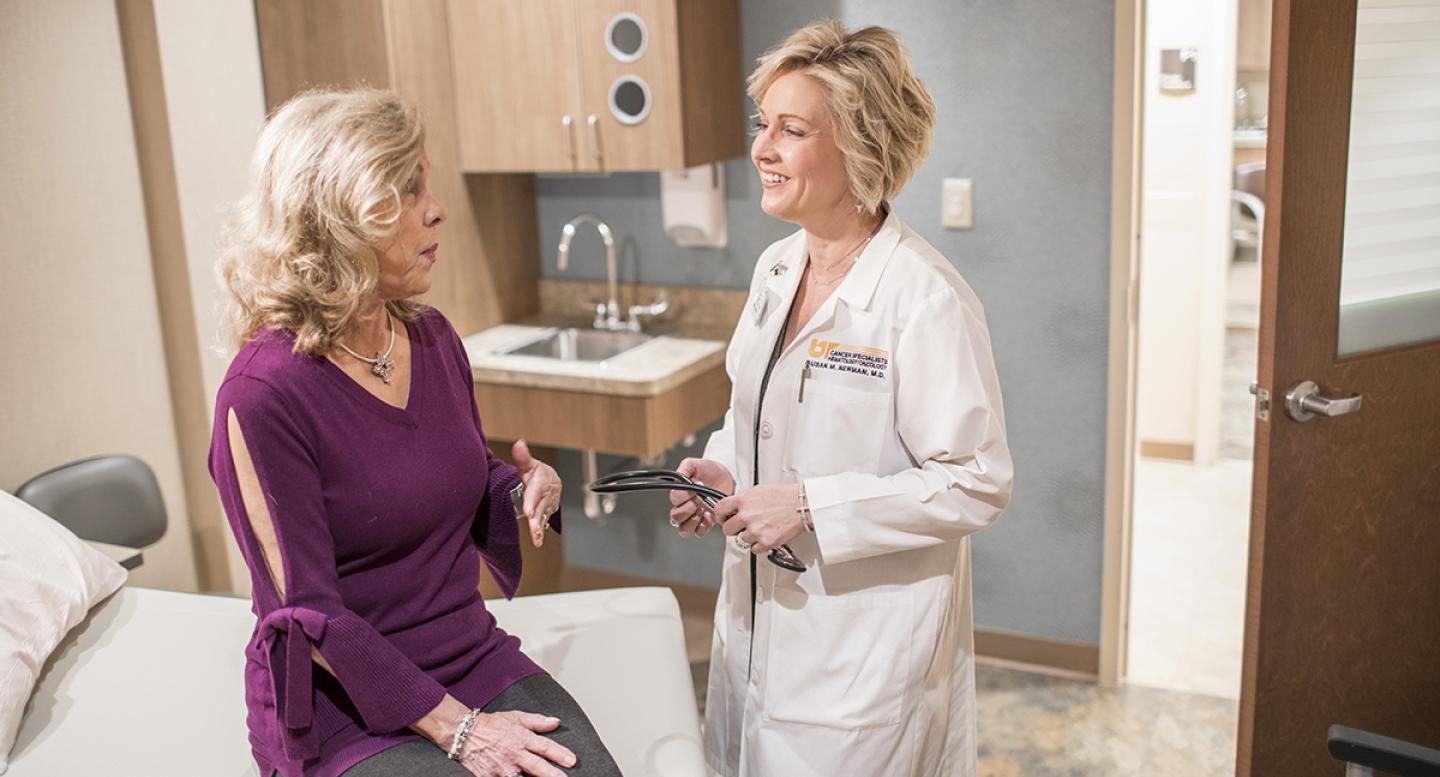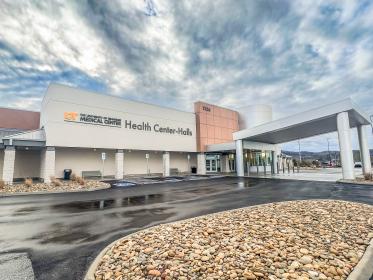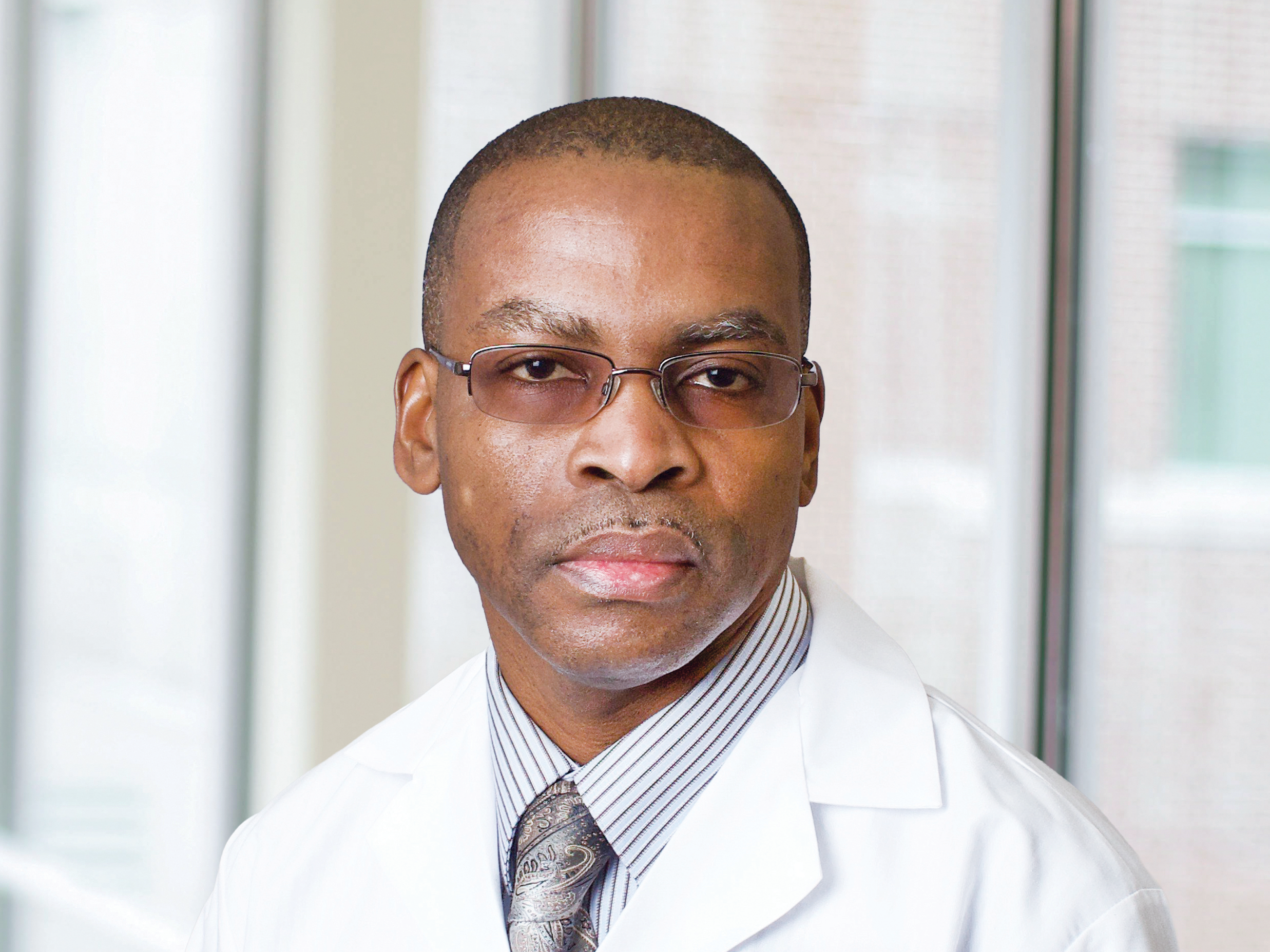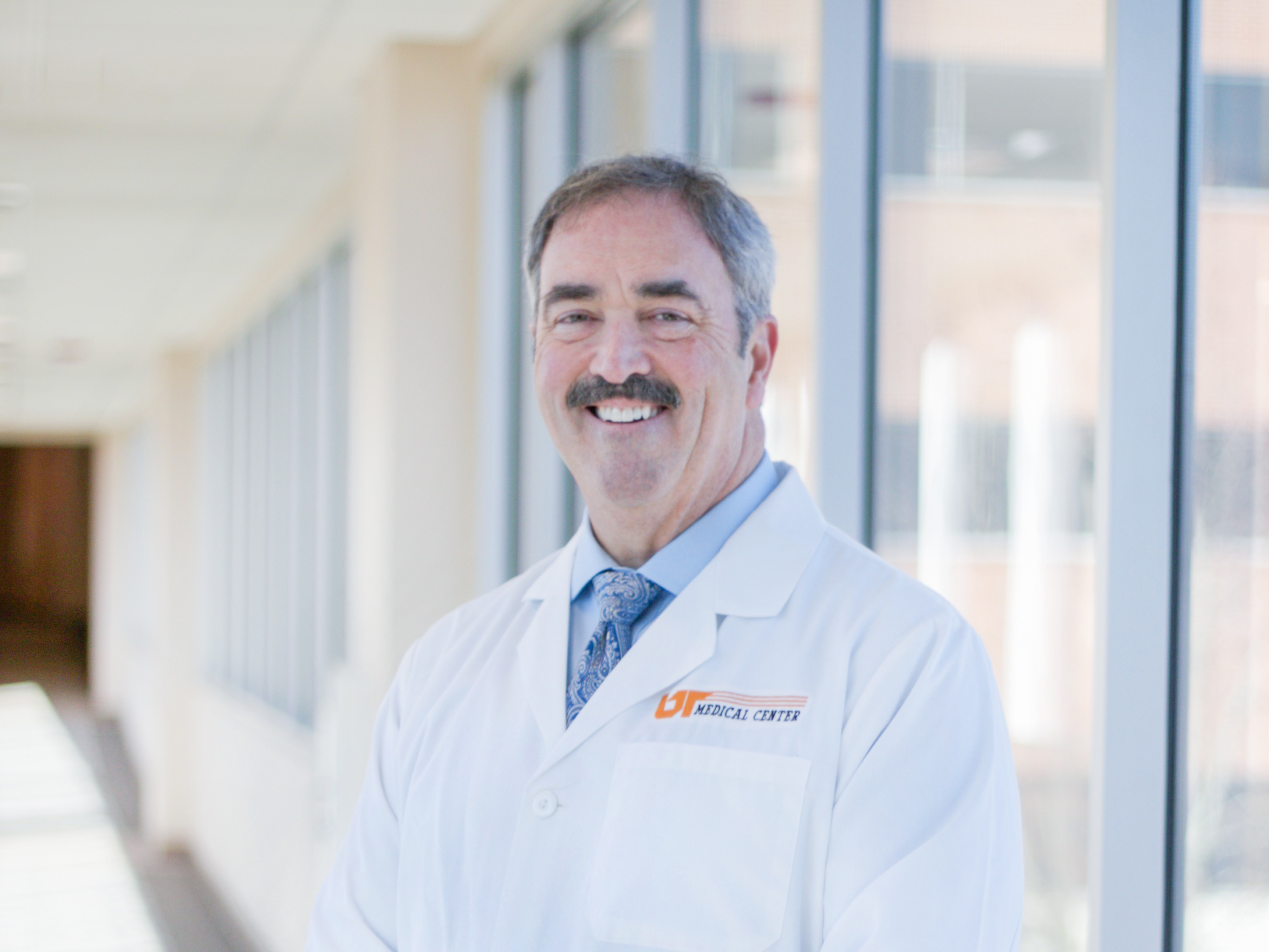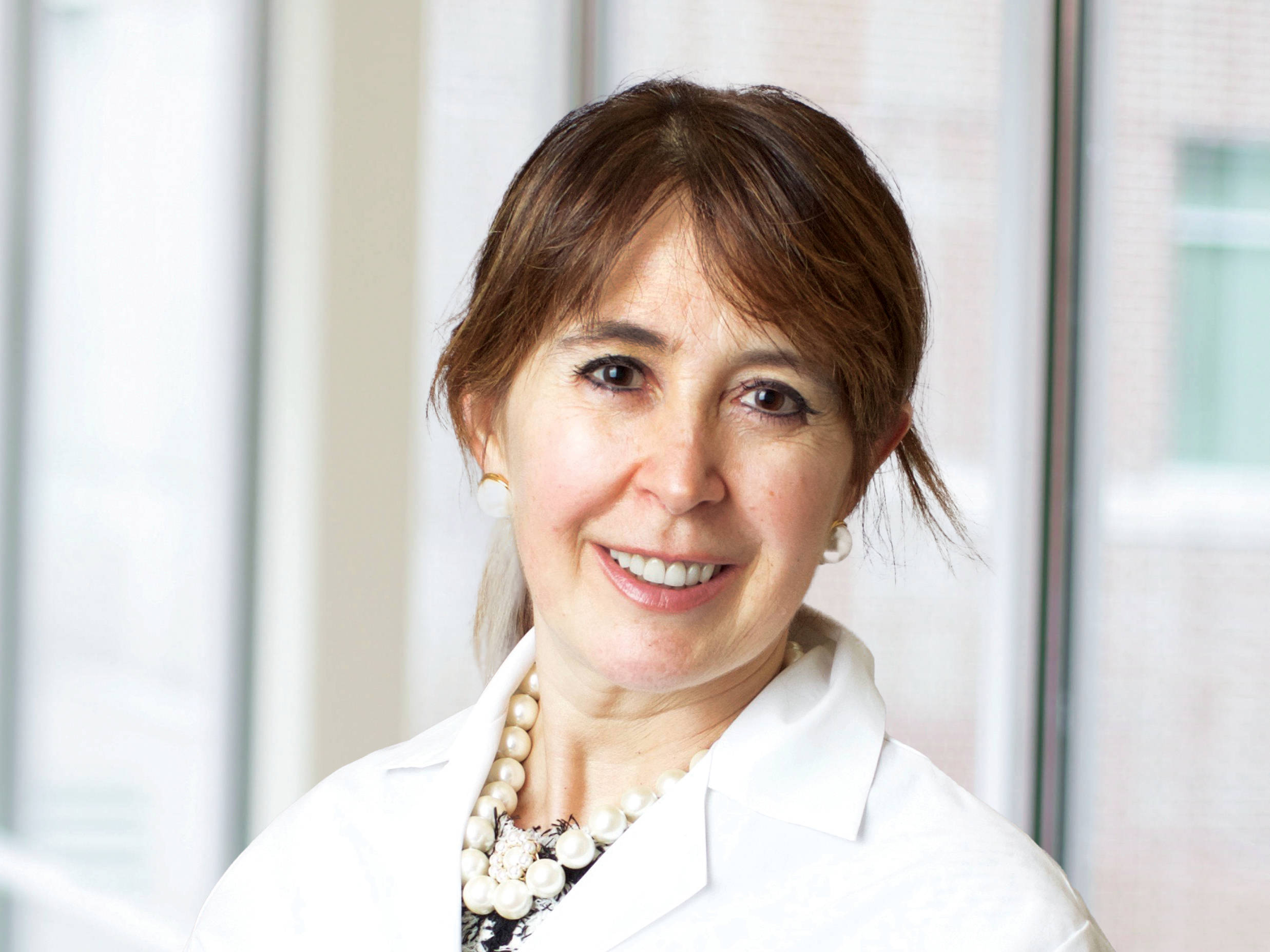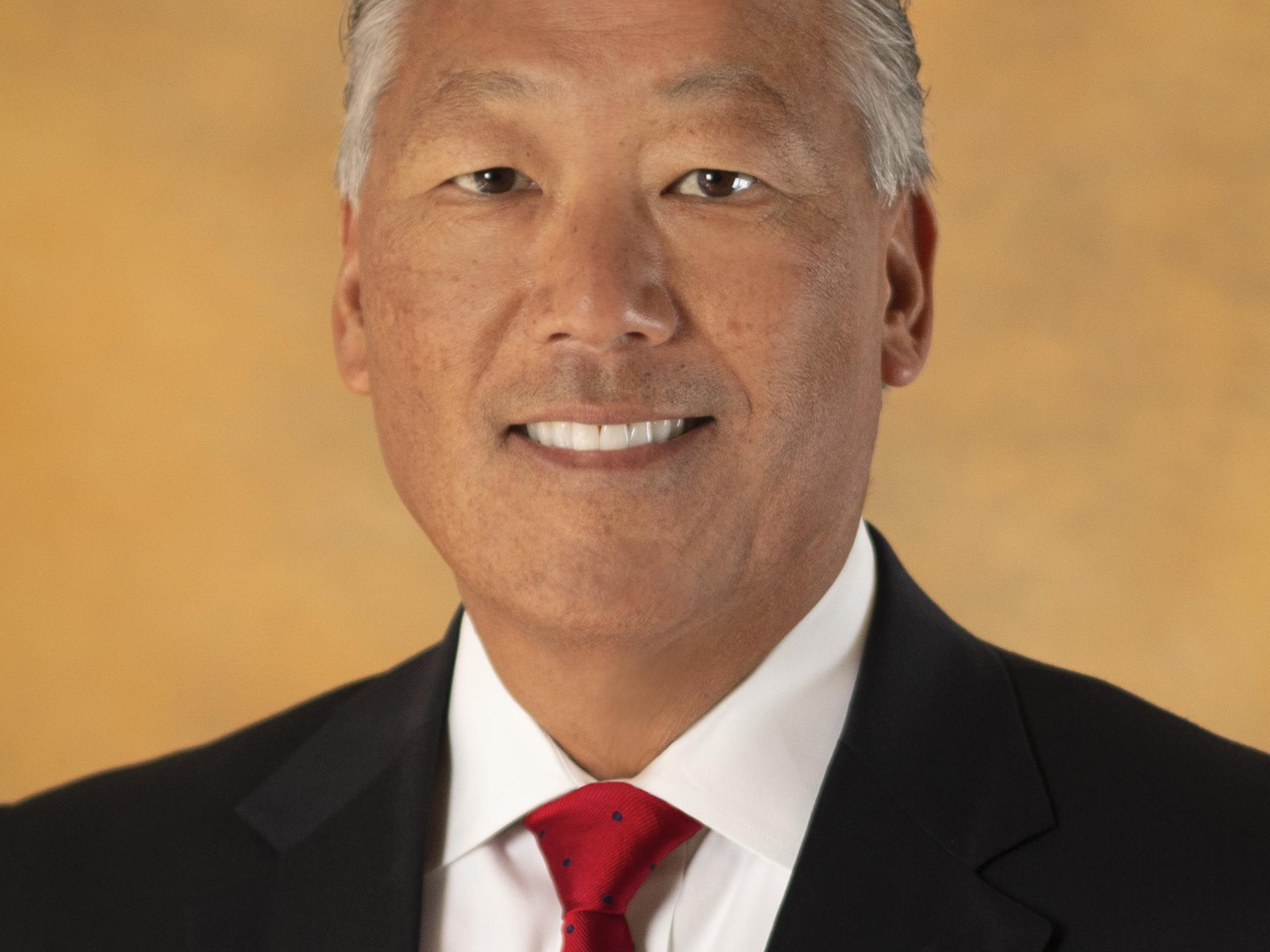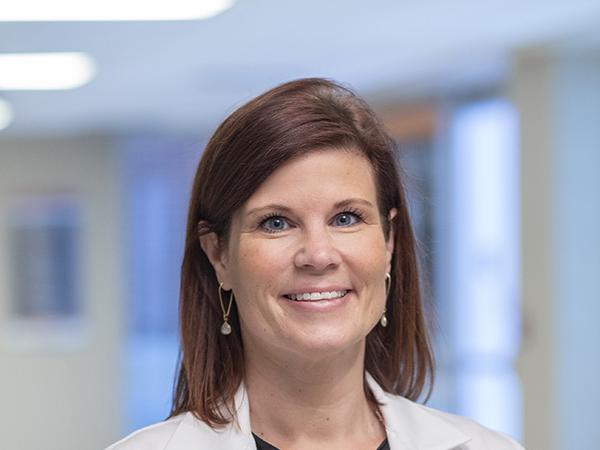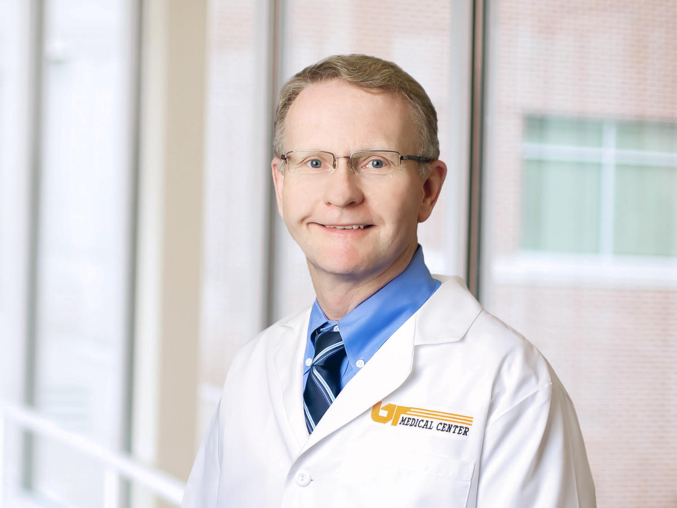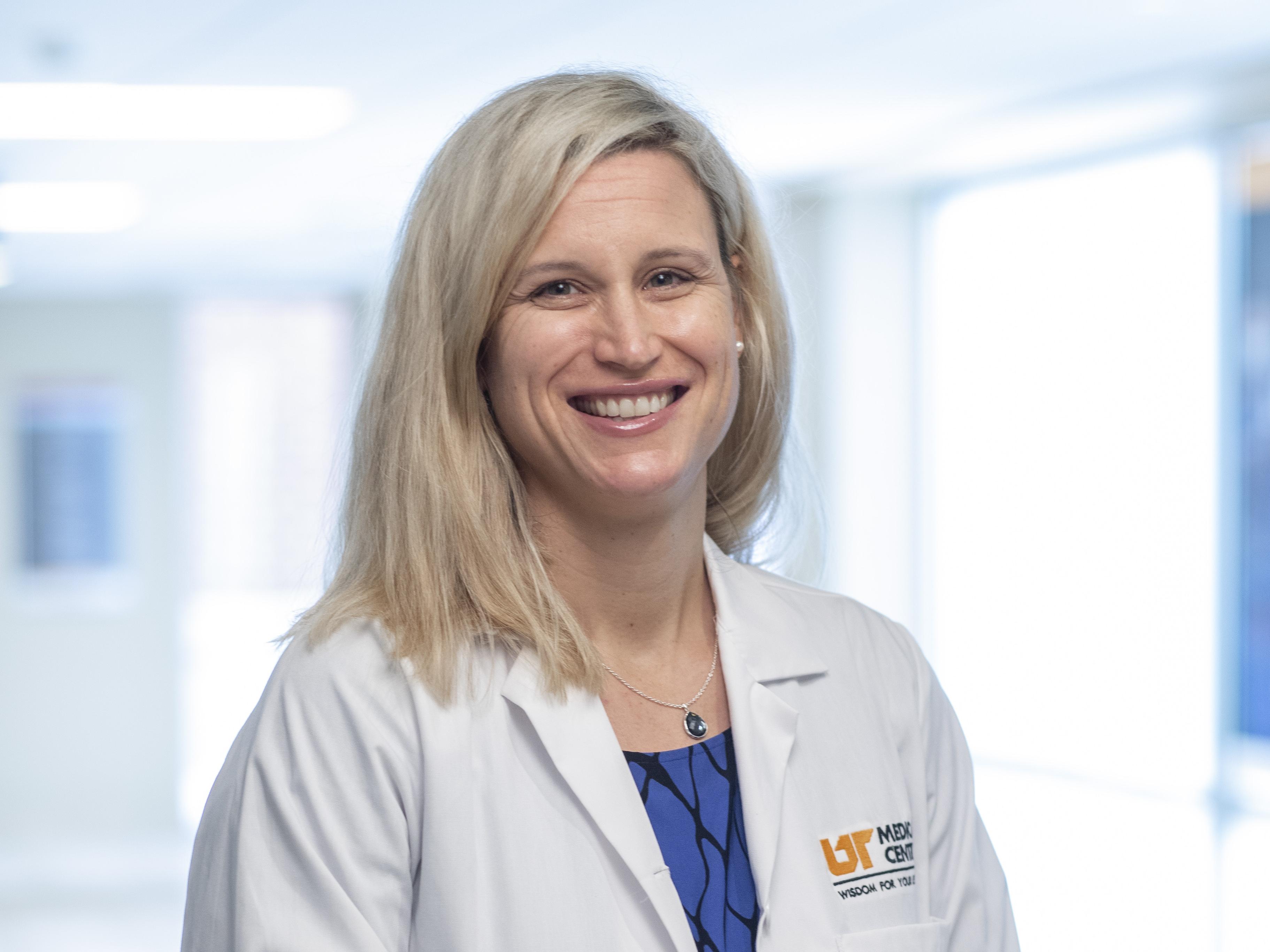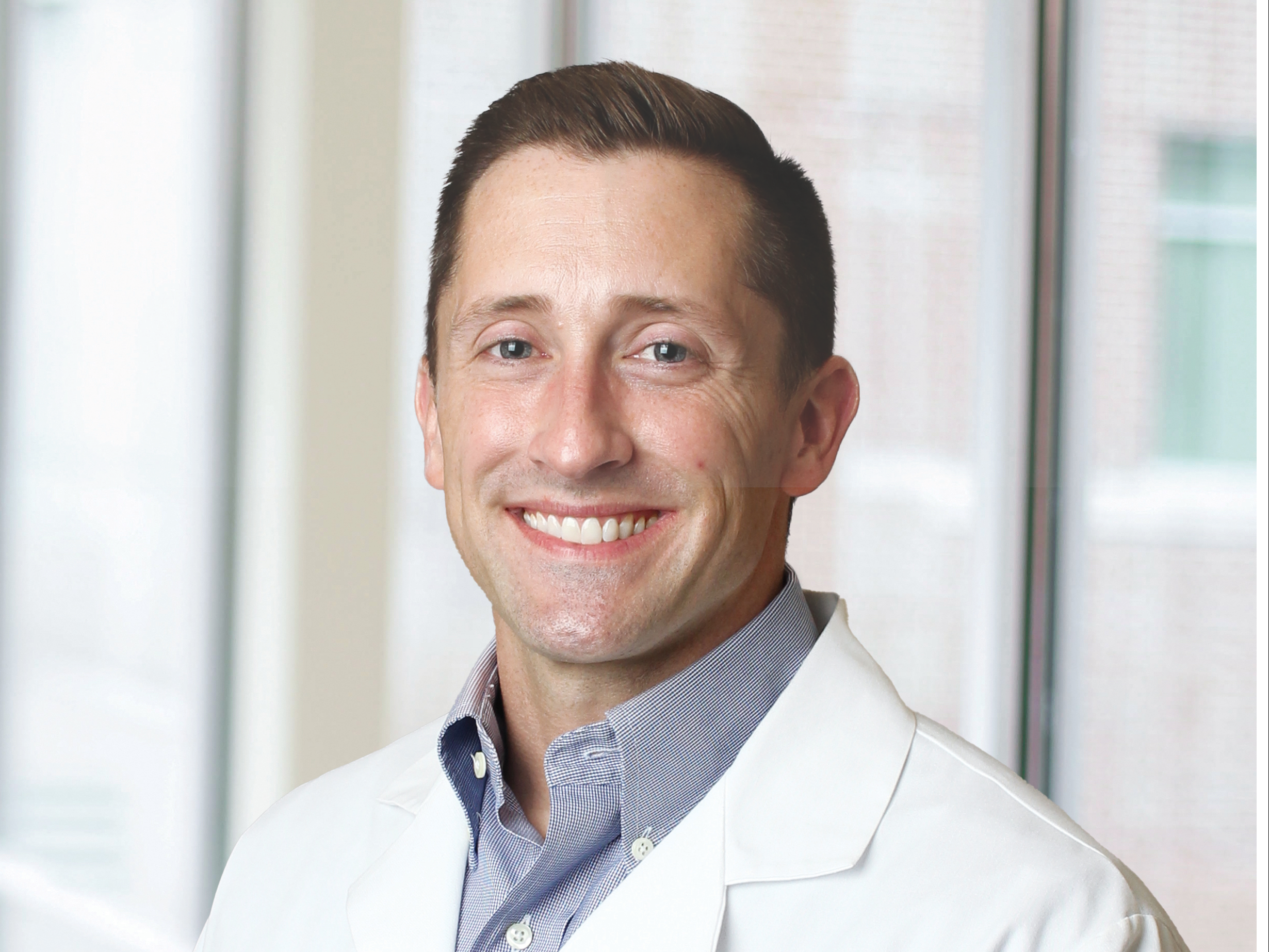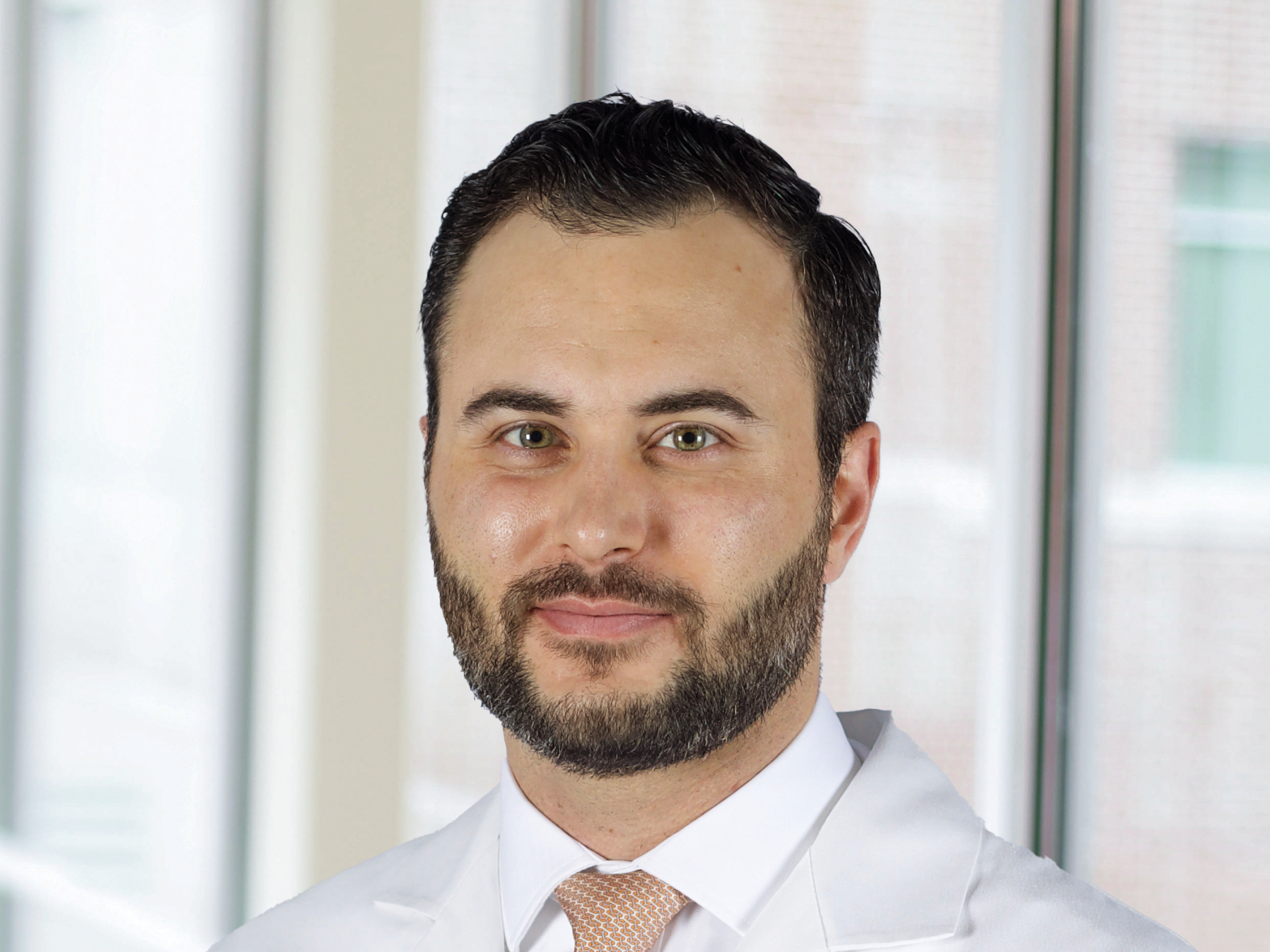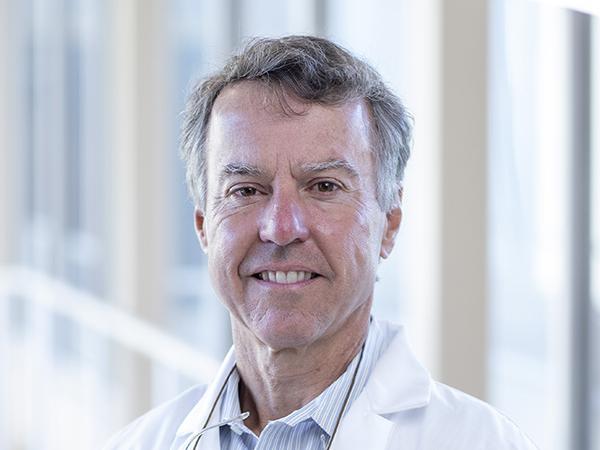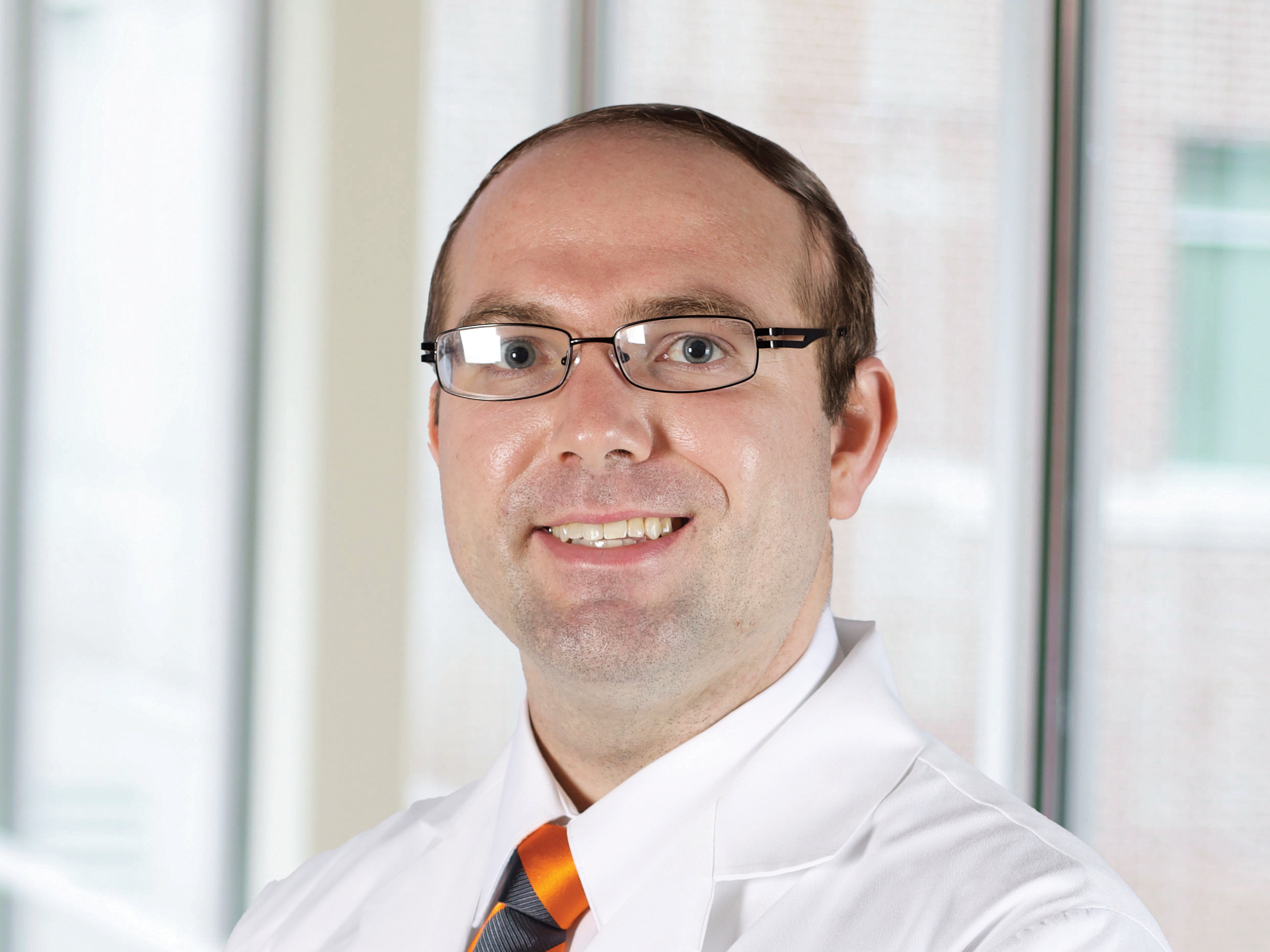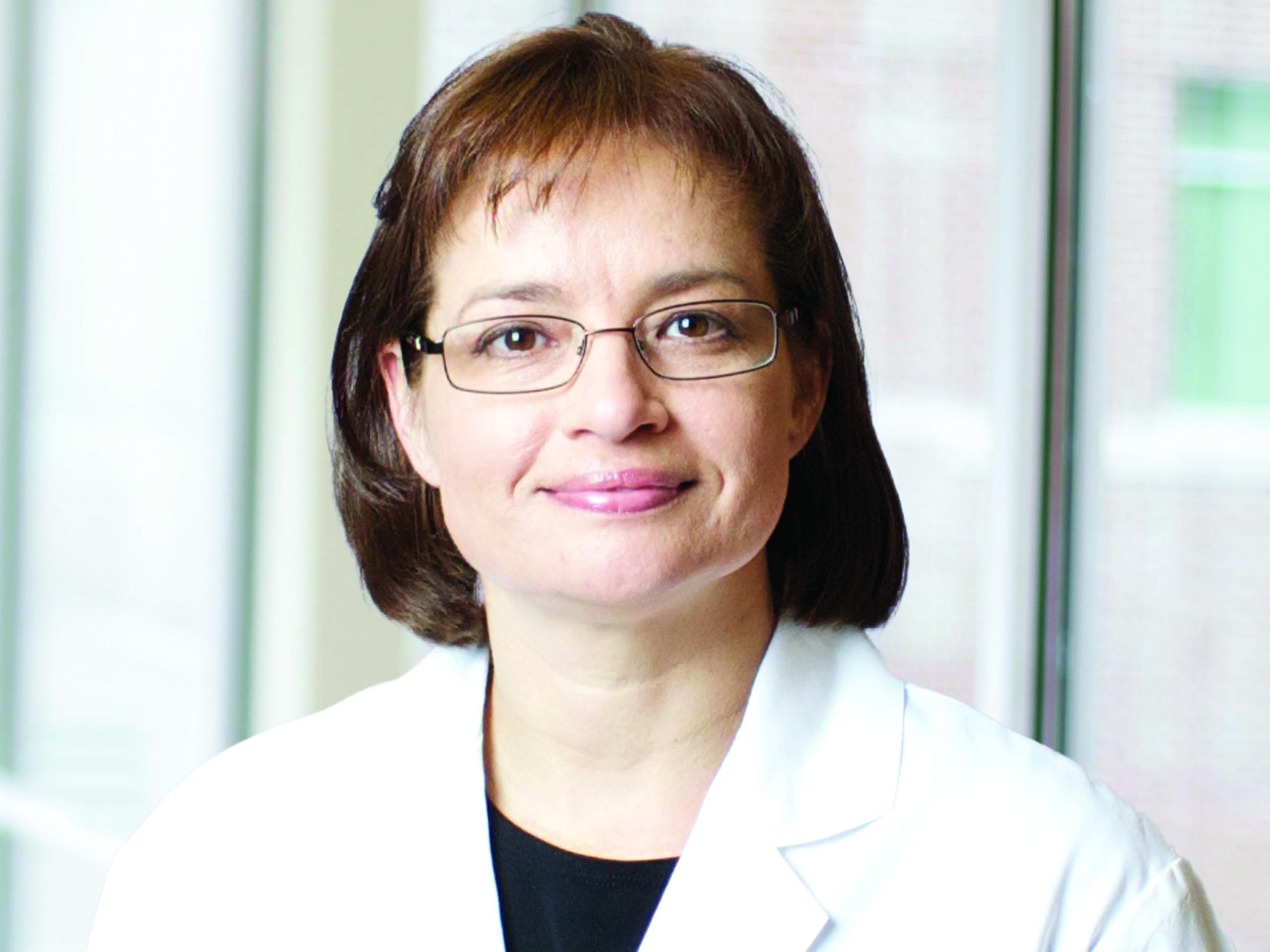Overview
The Head and Neck Tumor Program at The University of Tennessee Medical Center provides state-of-the-art treatment of tumors of the oral cavity, salivary glands, neck, face, jaws, larynx, throat, and thyroid. The program also provides expert care for patients who have sustained oral/head and neck complications from trauma or cancer therapies such as radiation tissue injury, osteonecrosis of the jaws, and other wound healing problems.
Conditions treated by the Head and Neck Tumor Program include:
- Carcinoma of the oral cavity
- Carcinoma of the oropharynx
- Carcinoma of larynx/hypopharynx
- Facial skin cancer/ lip cancer
- Medication related osteonecrosis of the jaws
- Odontogenic tumors
- Osteoradionecrosis of the jaw
- Salivary gland blockage (sialadenitis)
- Salivary gland tumors
- Sarcomas of the facial and jaw bones
- Thyroid Cancer
Your Treatment Options
The Cancer Institute at The University of Tennessee Medical Center offers the broadest spectrum of cancer specialists and services to care for our patients with head and neck cancers. Cancer patients receive all of their cancer care including surgical consultations, radiation therapy, genetic counseling/testing, chemotherapy infusions, and supportive/integrative health services, all in the same building.
Patients are reviewed at our weekly multidisciplinary conference where surgeons, medical oncologists, radiation oncologists, radiologists, pathologists, genetic counselors, nurses and clinical trials coordinators gather to determine the best individualized treatment plan for each patient. This level of coordination ensures that patients are receiving the highest level of care, offering the best outcomes and quality of life.
Treatment options include:
- Chemotherapy
- Head and Neck Reconstruction
- Molecular Imaging and Tracer Development
- Radiation Therapy
- Surgery
- Transoral Robotic Surgery (TORS)
Oral and Maxillofacial Surgeons
Our oral and maxillofacial surgeons offer state of the art surgical techniques to patients with oral/head and neck cancer including sentinel lymph node mapping and biopsies, time honored neck dissections, jaw resections, and minimally invasive salivary gland surgery. Immediate reconstruction is considered for all patients.
Otolaryngologists
Otolaryngologists are specially trained surgeons qualified to treat benign and malignant tumors of the head and neck including tumors of the mouth, throat, larynx, salivary glands and skin. Otolaryngologists are certified by the American Board of Otolaryngology after graduating college, medical school, and at least five years of residency training. Head and neck surgery training is an integral part of Otolaryngology training. This training in combination with other areas of training in Otolaryngology (sinus, ears, voice, etc..) make the Otolaryngologist uniquely positioned to provide comprehensive surgical care for head and neck cancer patients.
Additional highly specialized training is available to graduates of otolaryngology residency programs in the management of advanced and complex disease. Dr. Quinn Dunlap has completed fellowship training in head and neck surgical oncology, minimally invasive transoral robotic surgery, surgery of the thyroid and parathyroids, and microvascular reconstruction, making him the first of this kind in East Tennessee.
Speech Pathologists
The unique nature of cancer surgery of the oral cavity and upper aerodigestive tract with the development of speech and swallowing problems often requires the assistance of speech and language pathology. These services assist patients in resuming acceptable speech and swallowing patterns following cancer treatment. Some patients benefit from preoperative speech and language assessment to properly prepare them for postoperative challenges. Our speech pathologist can be reached at 865-305-9150.
Dietitians
The impact of surgery and radiation therapy on the oral cavity and oropharynx is such that the ability to take nutrition may be adversely affected. As such, experienced dietitians provide support of the needs of patients with assessments of nutritional intake during inpatient and outpatient evaluations. Evaluations are available prior to surgery so as to properly prepare the patient and family for postoperative nutritional support. Our dietitian can be reached at 865-305-8099.
Neuroradiologists
Highly sophisticated imaging studies interpreted by neuroradiologists are available for our patients with oral/head and neck tumors. These include PET/CT, MRI, CT and angiography. The accurate nature of these imaging studies results in greater precision of surgery and non-surgical therapy of oral/head and neck tumors. Our program emphasizes clinical research protocols involving these imaging studies.
Interventional Radiologists
These highly specialized radiologists provide state of the art support to our patients for minimally invasive biopsies of tumors of the neck and embolization of blood vessels surrounding tumors so as to decrease blood supply to a tumor at the time of surgery. Both techniques permit diagnostic and treatment precision thereby improving patient outcomes.
Pathologists
The University of Tennessee Medical Center’s Department of Pathology provides expert surgical pathology services which are critical to the diagnosis and classification of head and neck cancers. An accurate diagnosis involving both gross and microscopic examination of tissue, body fluids and cells is a requisite to determining an individualized treatment plan for each patient. Special tests and molecular markers are also performed by the Pathology Department which provide additional information important to the multidisciplinary team when recommending the most appropriate treatment. The Department of Pathology also offers a second review and opinion of slides and reports from other facilities. Our team of board certified pathologists includes pathology faculty members who specialize in specific cancers and have extensive experience evaluating and accurately characterizing cancerous tissue specimens.
Prosthetics
The rehabilitation and reconstruction of patients following tumor surgery requires a functional and cosmetic assessment of patient needs. Prosthetic replacement of eyes, noses, ears, and teeth is able to be performed for full functional and cosmetic rehabilitation of patients following surgery for benign and malignant tumors of the oral/head and neck region. Such replacement distinguishes our tumor program by restoring patient appearance and maintaining quality of life.
Plastic and Reconstructive Surgeons
The head and neck tumor program emphasizes immediate and secondary reconstructive surgery. Our team of plastic surgeons provide comprehensive and unique reconstructive services to patients including free microvascular flaps so as to optimize function of patients following tumor resection.
Clinical Trials
Cutting-edge treatment is offered to patients along with opportunities to participate in National Cancer Institute and pharmaceutical clinical trials. Clinical trials are research studies made available to patients that offer the newest treatments and test new ways to prevent, detect, diagnose and treat diseases.
For more information, visit Clinical Trials.
Other Team Members
Your care team may also include:
Your Next Steps
If you or a loved one has been recently diagnosed with a head and neck cancer, we are here to help.
All oncology specialists and procedures are available in one location, the Cancer Institute, on the campus of The University of Tennessee Medical Center. We also have oncology services available in UT Medical Center’s Regional Health Centers in Lenoir City and Sevierville, as well as satellite offices in Alcoa and Maryville.
Our Cancer Institute team is here for you in what can be a very stressful time. Please don’t hesitate to ask questions and request help when you need it. Our new patient section will provide you additional information about the Cancer Institute and everything you need to know to prepare for your first visit.
